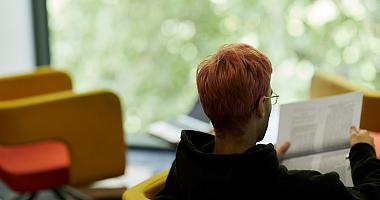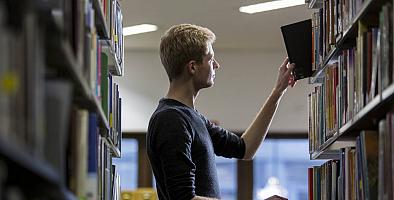Course information
Department
Length
1 year full-time or 2 years part-time
Scholarship information
Course overview
This pathway of the MA Literary Studies focuses especially on twentieth and twenty-first century literature.
Why study the MA Literary Studies: Modern and Contemporary Literature pathway at Goldsmiths
- On the compulsory module for this Masters programme, you'll look at the most significant trends, influences, and movements in twentieth-century literature. This includes literary realism, expressionism, absurdism, writing on the Holocaust, and the emergence of poststructuralism and postmodernism.
- We study some of the most important European and American texts of this time period and situate them within their relevant cultural contexts. We'll get you reading and analysing works by James Joyce, André Gide, Samuel Beckett, W.G. Sebald, Primo Levi and Virginia Woolf – among others.
- You'll have the opportunity to pursue your wider interests by studying three options from the large provision of the department, choosing at least one of these in an area that is relevant to modern literature.
- You will be able to further develop your interest in literary theory or literary-theoretical approaches to literature and culture through a 15,000-word dissertation to be submitted at the end of your programme of study.
The convenor of this pathway is Dr Carole Sweeney
Contact the department
If you have specific questions about the degree, contact the Department of English.





